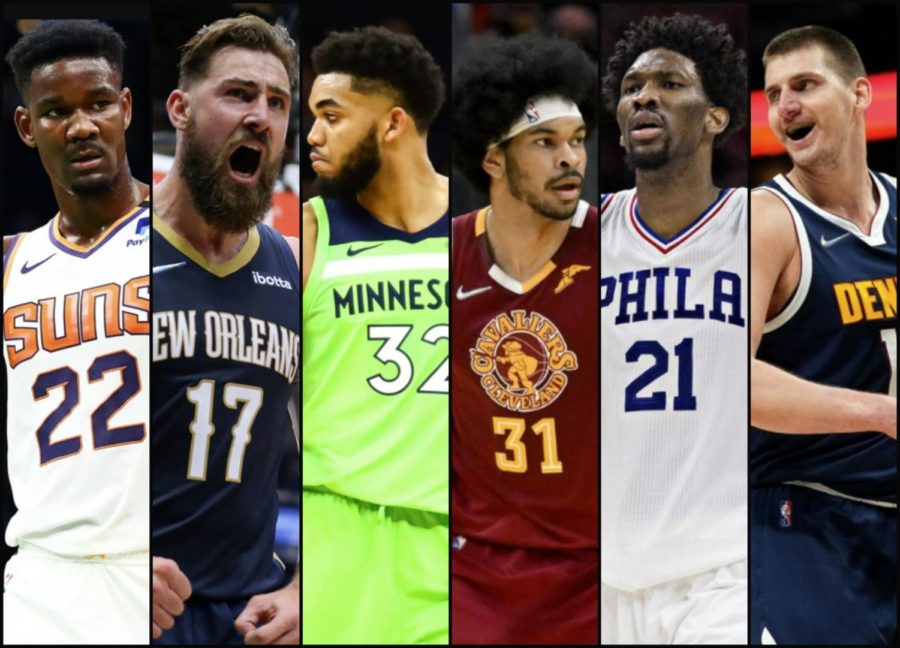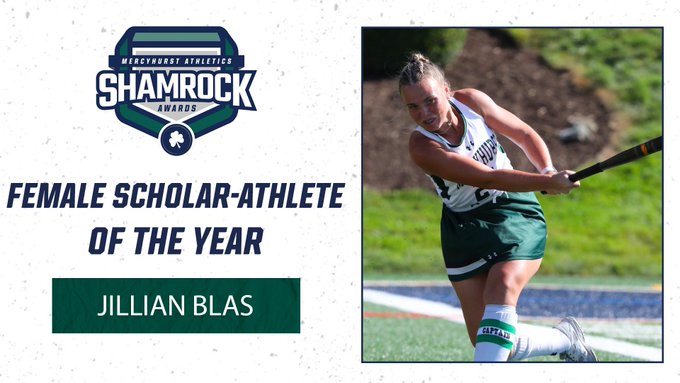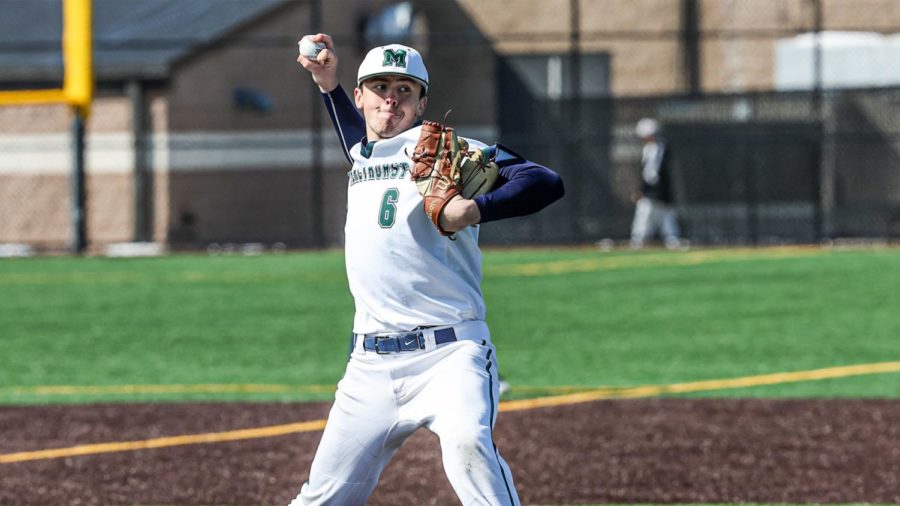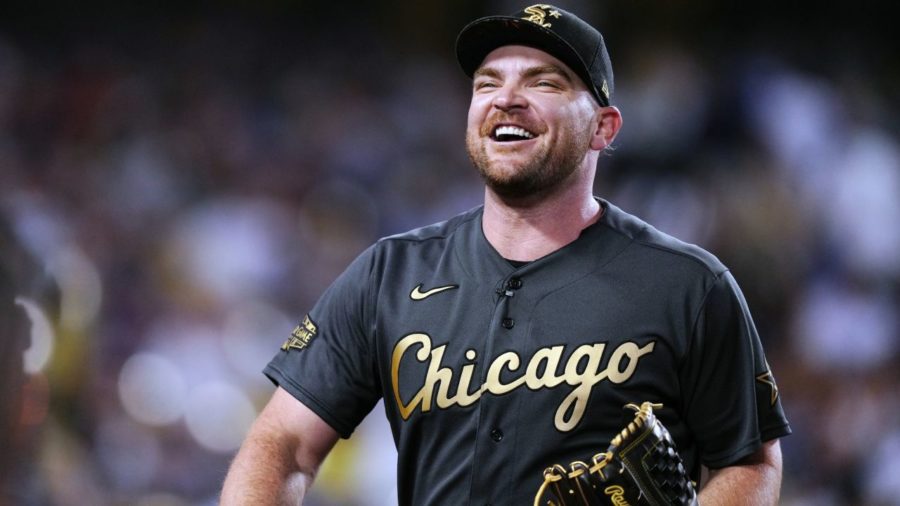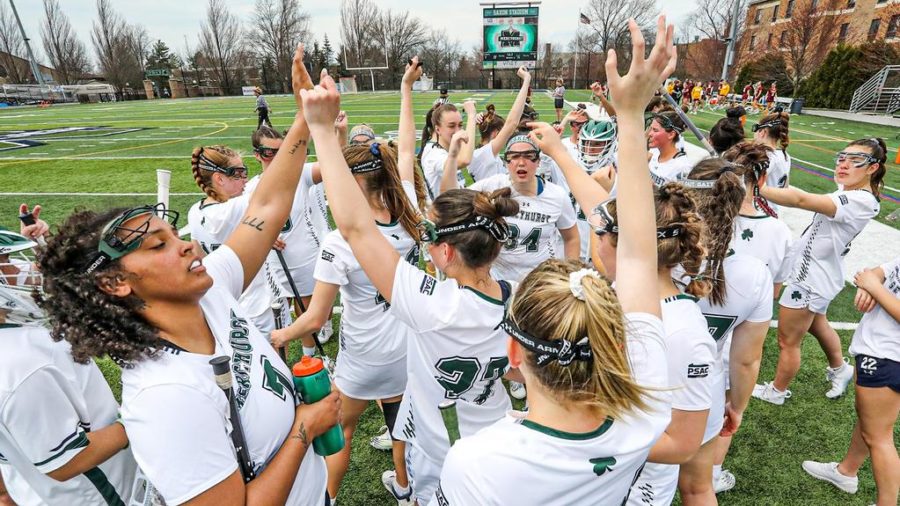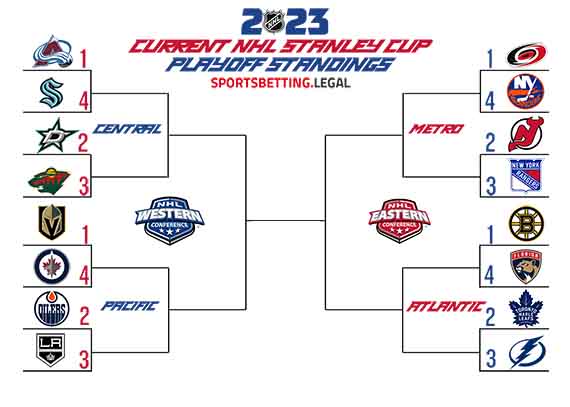Kirsten Miller is an elite Division I athlete at Mercyhurst University with an amazing story of bravery, grit and determination behind her equally impressive talents on the ice.
Division I athletes are considered the crème de la crème of young sports played by men and women from across the globe, Miller is no exception to this as the Ontario, Canada, native settles at the Hurst for her freshman year.
The competition in Miller’s homeland between young women for places in Division I ice hockey programs is usually the largest obstacle for athletes at such a level to overcome.
Some may argue it is the travel implications, the stress of leaving family and friends for significant periods of time or simply the immense demands that make hockey of one of the toughest, most draining sports, both physically and mentally at the collegiate level.
However, Miller had one more hurdle than most on her way to the exclusive DI club.
Miller was born profoundly deaf, meaning she could not hear anything. She wore hearing aids up to the age of 8, whereby she underwent an operation to receive a cochlear implant; a small, complex electronic device that can help to provide a sense of sound to a person who is profoundly deaf or severely hard-of-hearing.
It consists of an external magnetized portion behind the ear and a second portion that is surgically placed under the skin. The surgery was a great success and true to her amazing character, Miller’s first words after waking from the operation were
“Can I play hockey?”
With English influence in her family, Miller had played a variety of other sports, including soccer and rugby. She was a relatively late starter in ice hockey, beginning at age 8.
Evidently, this had no bearing on her success in later life, as she is now competing as a freshman in the most competitive environment possible.
Miller speaks of the early implications of the implant and playing her new found love:
“Back when I first started playing hockey in the early 2000s, the foam in helmets was much thicker and would cause the magnet of my implant to fall off the side of my head. This was the first adversity I faced in the game. I remember the first time I went on the ice; I was crying because it kept falling off and I couldn’t hear anything.”
This was the first true sporting test of Miller’s implant on the ice, and although it would have been a hugely intimidating setback and deterrent to many others, let alone a young child, Miller’s character and determination shone through straight away:
“So what I did is I cut the foam out, in order for it to fit around the magnet and it worked!”
She showed a true display of determination and will persevere regardless of anything that was put in her way, although Miller does not advise doing this now.”
“Obviously doing that now would be a bad idea, with the level of concussions, but these days the technology is better and the foam is thinner.”
Miller spoke of difficulties she faces today in the modern game with great disregard and inspiring irrelevance.
“Sometimes the sweat or moisture can interfere with the implant or if a coach is calling me on the ice and I’m in another zone, sometimes it may be hard to pick up on what they are saying.”
“But he’s [coach] unbelievable, great. He’s always said I can talk to him whenever and I always go up to him. He’s amazing. And of course my teammates too,” she said.
As a sports business management major, she has high hopes academically and hopes to perhaps one day work for an NHL team or in women’s hockey. Miller also has high hopes and expectations for her own team this year.
“We definitely want to go all the way, win every game, and win the championship. I’m going in there accepting my role and whatever they want, I’ll be ready.”
With two assists and a goal on her collegiate debut in an exhibition match earlier last week, Miller looks to be a hot prospect and future star of the Hurst women’s ice hockey team.
Miller finished by offering these powerfully optimistic words of advice for any other student athlete or person facing some kind adversity:
“From a young age, I have always said to myself and accepted that I will have to work harder than most, both on the ice and in school. It’s helped me with my time management, my discipline.”
“I have friends who can study the night before for a test and get an A. But for me, I have to start a week earlier, longer than that. But you know what? So what. It’s what I have to do to be successful.”
“Have fun. Find something that you enjoy. Get involved in something and make a name for yourself. Don’t be defined and don’t let people define you, as the kid with this or the kid with that. Be the kid who’s great at this sport, the kid who’s awesome at that sport,” she said.

